Mr. Winkle Goes to War
Brief Synopsis
Cast & Crew
Alfred E. Green
Edward G. Robinson
Ruth Warrick
Ted Donaldson
Bob Haymes
Richard Lane
Film Details
Technical Specs

Synopsis
On 1 June 1942, meek bank clerk Wilbert Winkle screws up his courage and informs his boss, bank president A. B. Simkins, that he is quitting after fourteen years of service. When Simkins angrily accepts his resignation, Winkle's brother-in-law, Ralph Wescott, who is also employed at the bank, phones his sister Amy, Winkle's wife, to tell her the news. After leaving the office, Winkle visits Barry, an orphan he has befriended, and accompanies the boy to his workshop, which is situated behind the Winkle house. Telling Barry that he has designated the first of June as the day to open his fix-it-shop, Winkle asks the boy to join the business as a handy man. When Winkle informs the domineering Amy about his new venture, she declares that she will not be humiliated by being married to a handy man and demands that he choose between her and his shop. Ignoring Amy's threats, Winkle goes to work at the shop with Barry the next day. Late in the afternoon, the mailman delivers an induction notice to the Winkle house, and Amy takes the letter to her husband at his workshop. The next morning, Winkle reports to the induction center where, to his surprise, he is orderd to report to duty immediately. After the first day of grueling basic training, Winkle's commanding officer, Sgt. "Alphabet," decides to reassign the sickly recruit to a desk job. When Winkle pleads to be allowed to serve his country by using his mechanical abilities, the sergeant finally agrees to transfer him to a mechanical division. After undergoing a strenuous training program, Winkle is transformed into a robust soldier and is assigned to the motor mechanic unit. On the eve of his first furlough home, he is summoned back to the post to be shipped overseas to a combat area. As Winkle prepares to join his unit, his commanding officer informs him of a new army regulation granting an honorable discharge to all men over thirty-eight. Although Winkle is forty-four, he turns down the discharge to serve his country and phones Barry to tell him that he will not be coming home. Bitterly disappointed, Barry runs away to see Winkle, and when Mr. McDavid, the head of the orphanage, learns of the boy's plans, he and Amy go looking for him. After they find him hitchhiking along the road, Barry tells Amy that Winkle will not be coming home. When Amy wonders why her husband didn't accept a discharge, Barry rebukes her for failing to appreciate Winkle's integrity. That night, Winkle is shipped out to a Pacific island, where he is ordered to repair a broken-down bulldozer. While he is working on the engine, a contingent of Japanese soldiers attack Winkle's platoon. Although he is in the thick of gunfire, Winkle refuses to give up and continues to tinker with the engine until it finally starts. Driving the vehicle toward the enemy soldiers, Winkle overruns their position and routs their attack. Wounded in combat, he awakens in a hospital bed to discover that he has been declared a hero. Upon returning home, the modest Winkle avoids a welcoming reception and goes straight home, where Amy is waiting. When the crowd finds him there, Simkins announces that Winkle has been appointed vice-president of the bank. After Winkle rejects the promotion, Amy, who has finally accepted her husband's humble desire to work in a fix-it shop, escorts him to the back porch and shows him the short cut to his shop that she and Barry have built through the back fence.

Cast

Edward G. Robinson
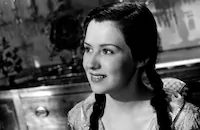
Ruth Warrick
Ted Donaldson
Bob Haymes

Richard Lane

Robert Armstrong
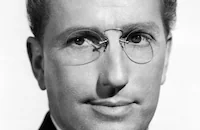
Richard Gaines
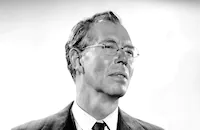
Walter Baldwin
Art Smith
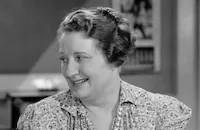
Ann Shoemaker
Paul Stanton

Buddy Yarus
William Forrest
Bernadine Heyes

Howard Freeman
Early Cantrell
Nancy Evans
Ann Loos
Mel Merrihugh

Bob Mitchum
Herbert Heyes
Ben Taggart
Sam Flint
Nelson Leigh
Forbes Murray
Ernest Hilliard
Les Sketchley
Ed Jenkins
Paul Stupin
Fred Lord
Cecil Ballerino
Ted Holley
Hugh Hooker
Neil Carter
Mike G. Letz
Edwin Mills
Robert Williams
Warren Ashe
Jack Lee
Doris Stone

Jeff Donnell
Kaye Dowd
Marilyn Johnson
Stephen Barclay
Larry Thompson
Mike Kilian
Terry Frost
Sandra Coles
Harry Mckim
Tommy Cook
Bobby Larson
Barry Downing
Hugh Beaumont
Joseph Kim
John Tyrrell
Fred Graff
John Elliott
Gary Bruce

James Flavin
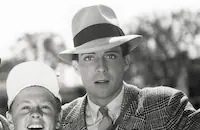
Dennis Moore
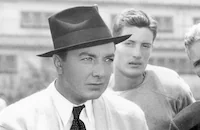
Fred Kohler Jr.

Emmett Vogan
Crew
Lieut. Robert Albaugh
Lionel Banks
Earl Bellamy
George Cooper
George Corey
Lambert Day
Norman Deming
Carmen Dragon
Richard Fantl
George Meehan
George Montgomery
Jack Moss
Val Raset
Waldo Salt
Paul Sawtell
Louis Solomon
Rudolph Sternad
Milton Stiefel
M. W. Stoloff
Henry Tucker
Roland Varno
Joseph Walker

Videos
Movie Clip
Trailer
Film Details
Technical Specs

Articles
Mr. Winkle Goes to War
Producer: Jack Moss
Director: Alfred E. Green
Screenplay: George Corey, Waldo Salt, Louis Solomon; Theodore Pratt (novel)
Cinematography: Joseph Walker
Art Direction: Lionel Banks, Rudolph Sternad
Music: Carmen Dragon, Paul Sawtell
Film Editing: Richard Fantl
Cast: Edward G. Robinson (Wilbert Winkle), Ruth Warrick (Amy Winkle), Ted Donaldson (Barry), Bob Haymes (Jack Pettigrew), Richard Lane (Sgt. 'Alphabet' Czeidrowski), Robert Armstrong (Joe Tinker), Richard Gaines (Ralph Westcott)
BW-79m.

Mr. Winkle Goes to War
Ruth Warrick (1915-2005) - Ruth Warrick, (1915-2005)
She was born on June 29, 1915 in St. Joseph, Missouri. After attaining a degree in theatre from the University of Kansas City, she left for New York, where in 1938, she joined the Mercury Theater troupe, headed by a young artist on the rise by the name of Orson Welles. When Welles prepared to film Citizen Kane (1941) he took several players from his Mercury Theater (Joseph Cotten, Everett Sloan, Agnes Moorehead) and of course, Ruth Warrick. She made her film debut in Welles' cinematic epic as Emily Norton Kane. Indeed, to many film buffs, Warrick's icy charms are indispensable to the celebrated montage sequence opposite Welles at the breakfast table; particularly when he broaches the subject of her husband's infidelity:
Emily Kane: Charles, people will think...
Charles Kane: What I tell them to think!
Warrick received fine reviews for her performance, and she had good roles in her next two films The Corsican Brothers (1941), with Douglas Fairbanks Jr., and Journey Into Fear (1942), opposite Joseph Cotton. Sadly, Hollywood, not knowing what to do with a well-trained, mature actress like Warrick, began to cast her into routine, forgettable fare: Mr. Winkle Goes to War (1944), China Sky (1945), and Swell Guy (1946). Disney's Song of the South (1947), was a box-office hit, and was her best film in a while, but overall, the material she received over the next few years, simply wasn't worthy of her talents.
Things turned around for her in the mid-50s, when Warrick discovered the medium of television. She had regular roles on The Guiding Light (1953-54), As the World Turns (1956-60), Father of the Bride (1960-61), and was unforgettable as the sinister housekeeper, Hannah Cord, in Peyton Place (1965-67). Yet it was her 35-year run in the role of Phoebe Wallingford in All My Children (1970-2005), that Warrick achieved her greatest triumph. As the rich, intrusive matriarch of the fictitious, affluent town known as Pine Valley, Warrick found a role that could be at once gloriously hammy and quietly conniving - qualities that highlighted her renown versatility as an actress. To honor her contribution to television, Warrick received a lifetime achievement award from the Daytime Emmys last December. She is survived by three children, a grandson, and six great-grandchildren.
by Michael T. Toole
Ruth Warrick (1915-2005) - Ruth Warrick, (1915-2005)
Quotes
Trivia
Notes
Theodore Pratt's novel was serialized in the New York Post. According to pre-production news items in Hollywood Reporter, Harold Lloyd was originally slated to produce and star in this picture, which would have been his first in five years. Edgar Buchanan and Charles Laughton were later considered for the male lead. According to a 1 February Hollywood Reporter news item, Lee Jason took over as director from Alfred Green and George Meehan stepped in for photographer Joseph Walker when both men fell ill while filming the barracks scenes. The mountain obstacle course scene was shot in Bronson Canyon in Los Angeles, CA, according to another Hollywood Reporter news item. Columbia publicity materials contained in the film's production files at the AMPAS Library note that Val Raset taught Edward G. Robinson to jitterbug for the film's USO scene and add that Roland Varno coached some of the actors who had to speak Japanese in the film. According to the Variety review, stock footage of the Pacific Islands invasion was employed in this film. The 1943 regulation described in the film, which granted an honorable discharge to all men over thirty-eight, was based in fact.
















